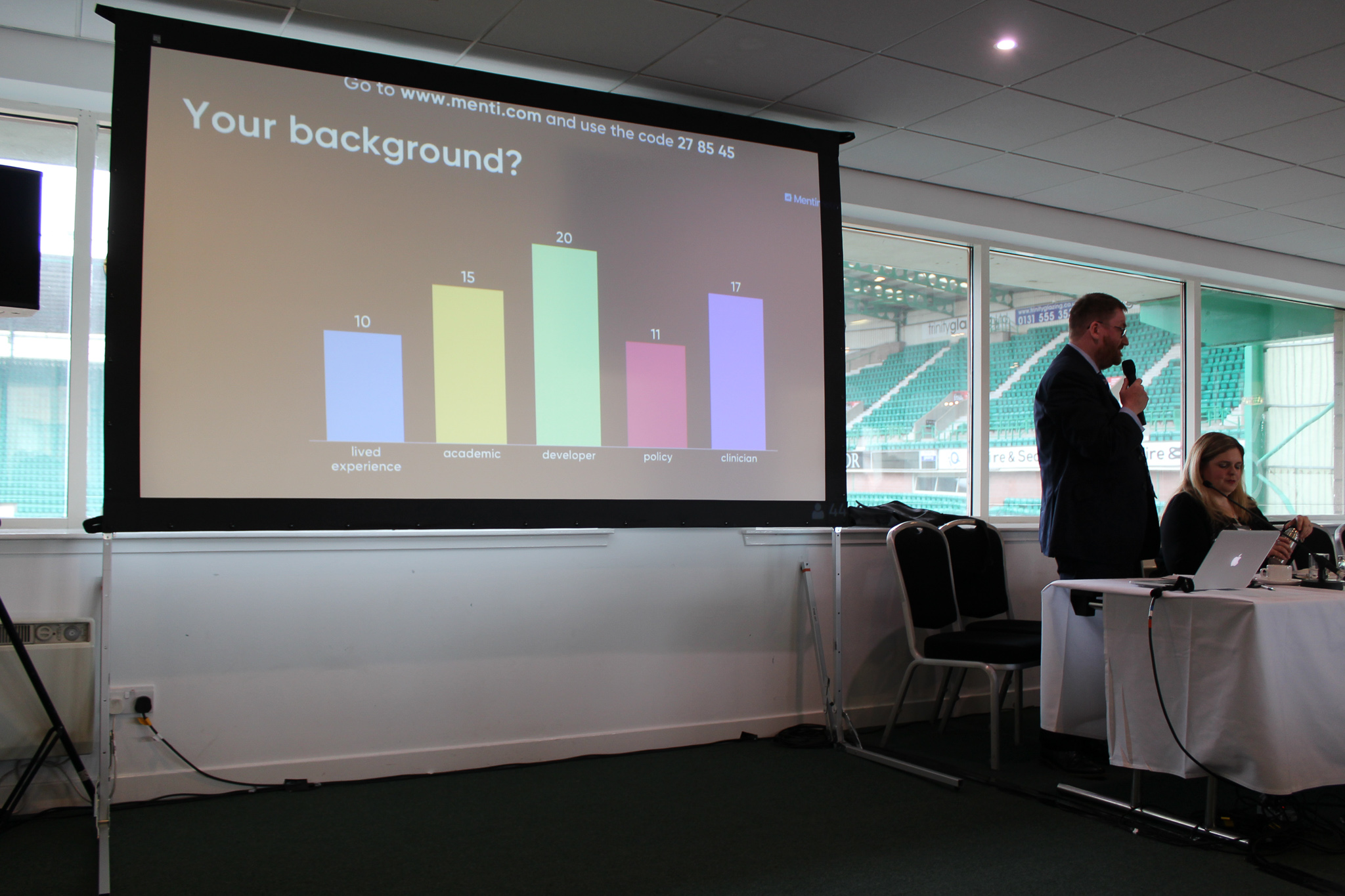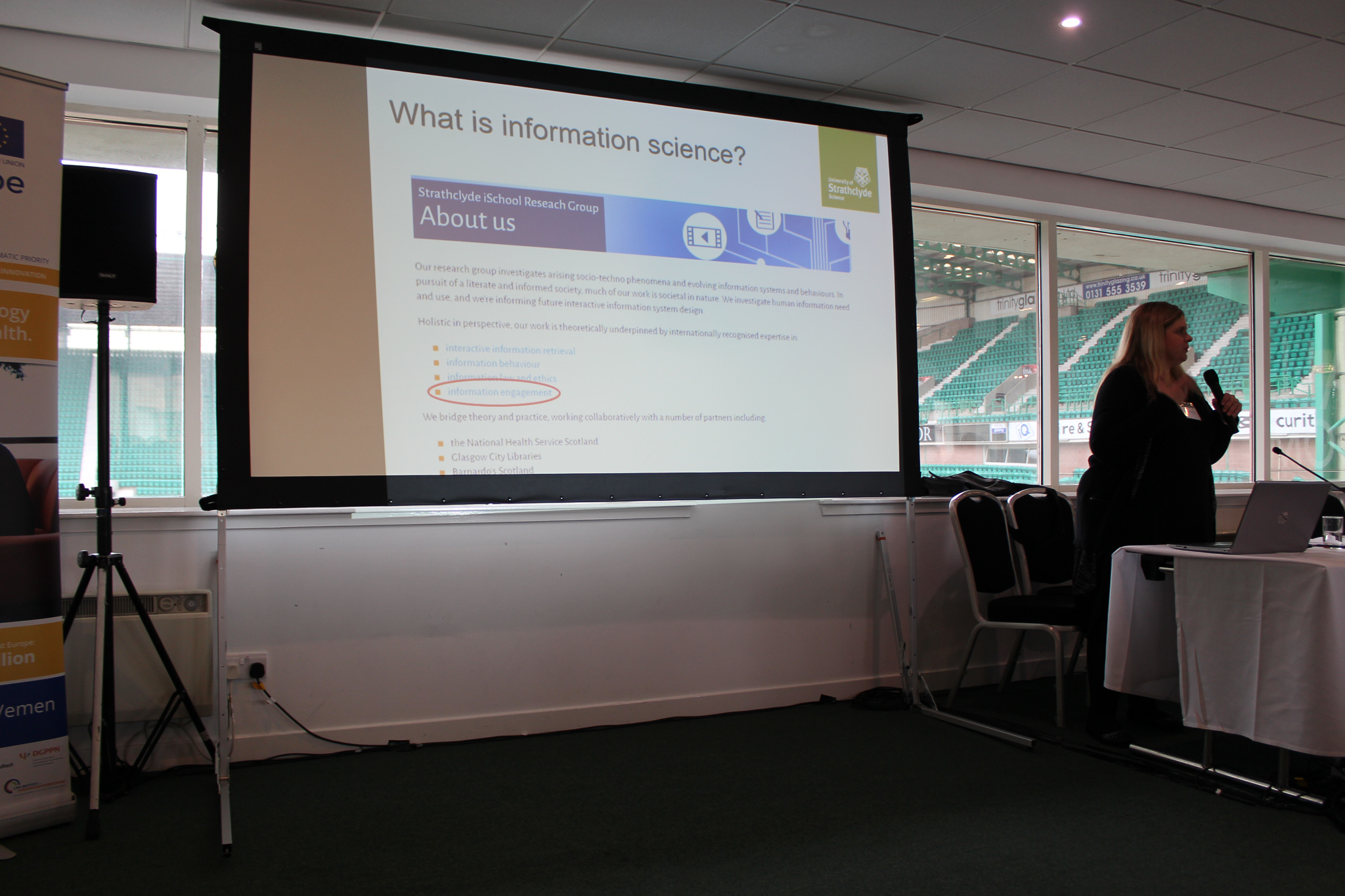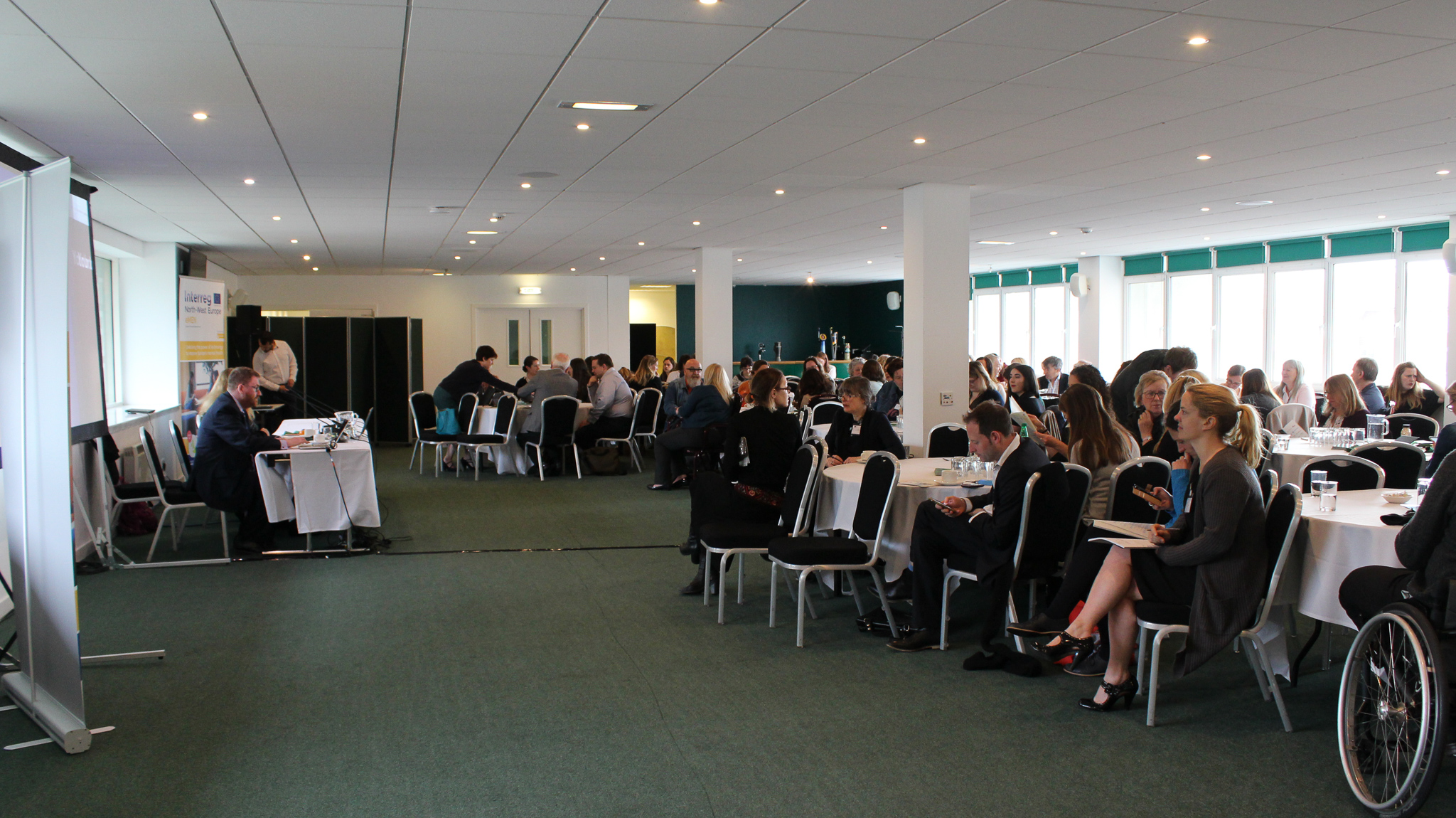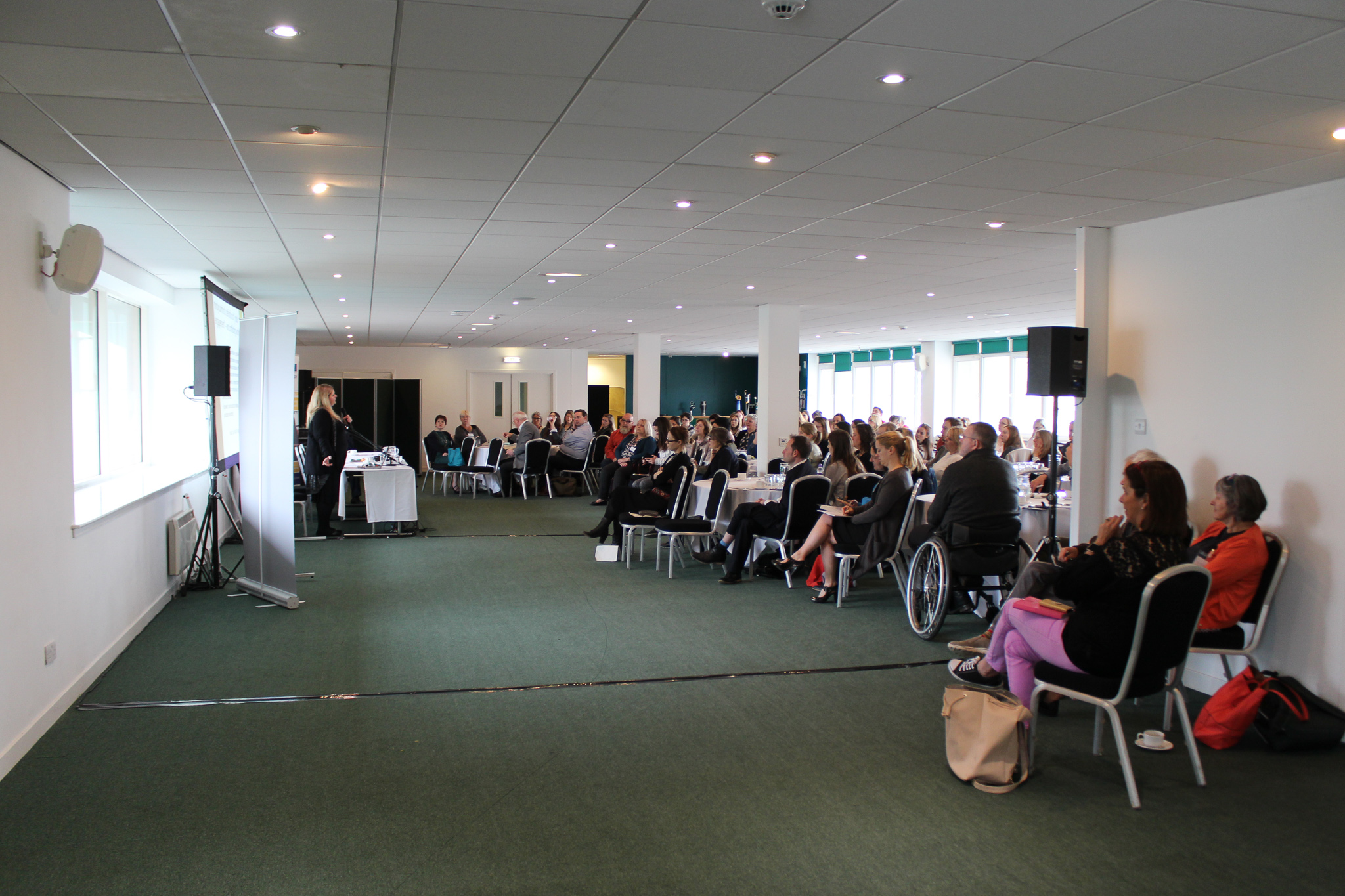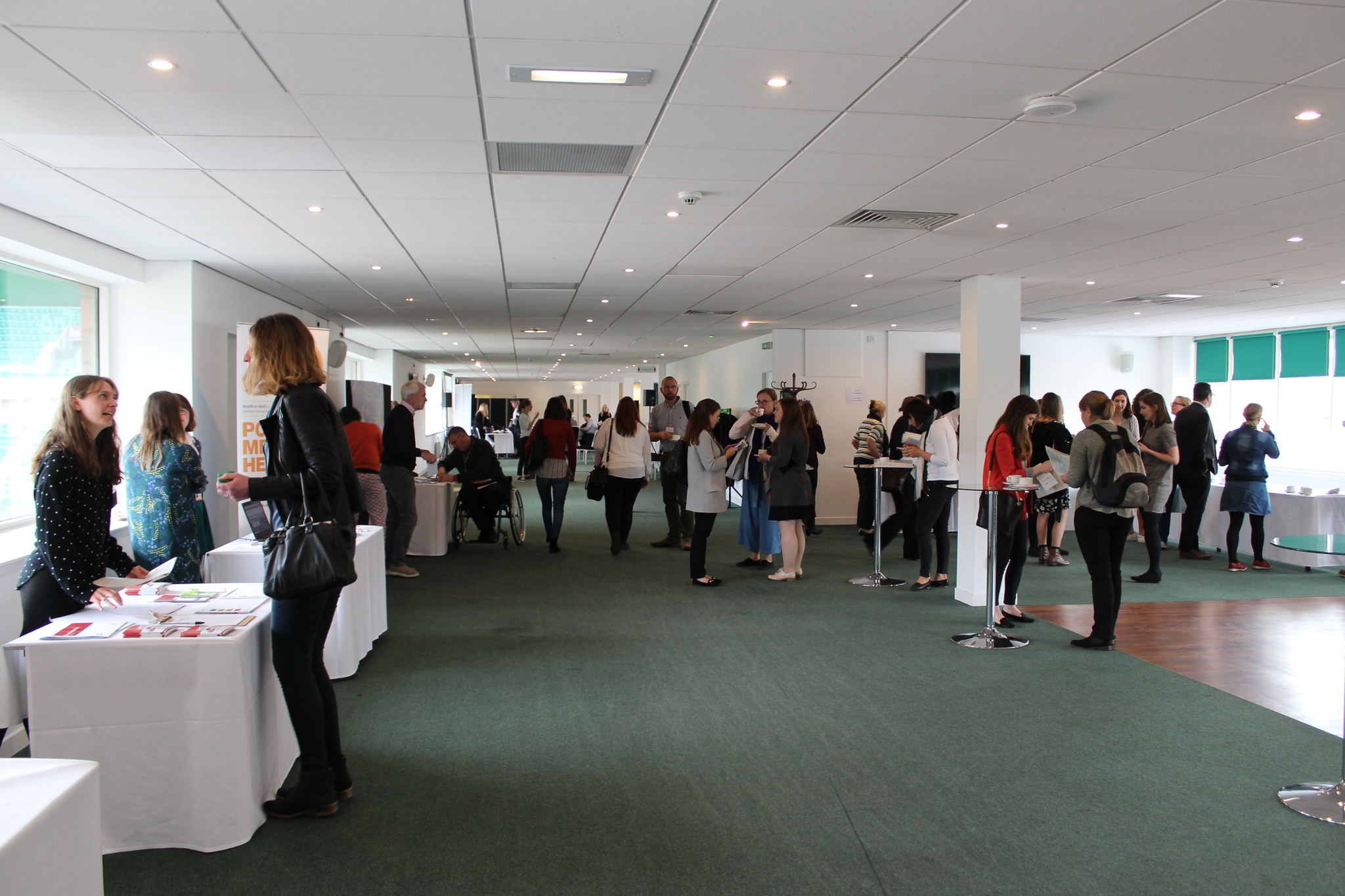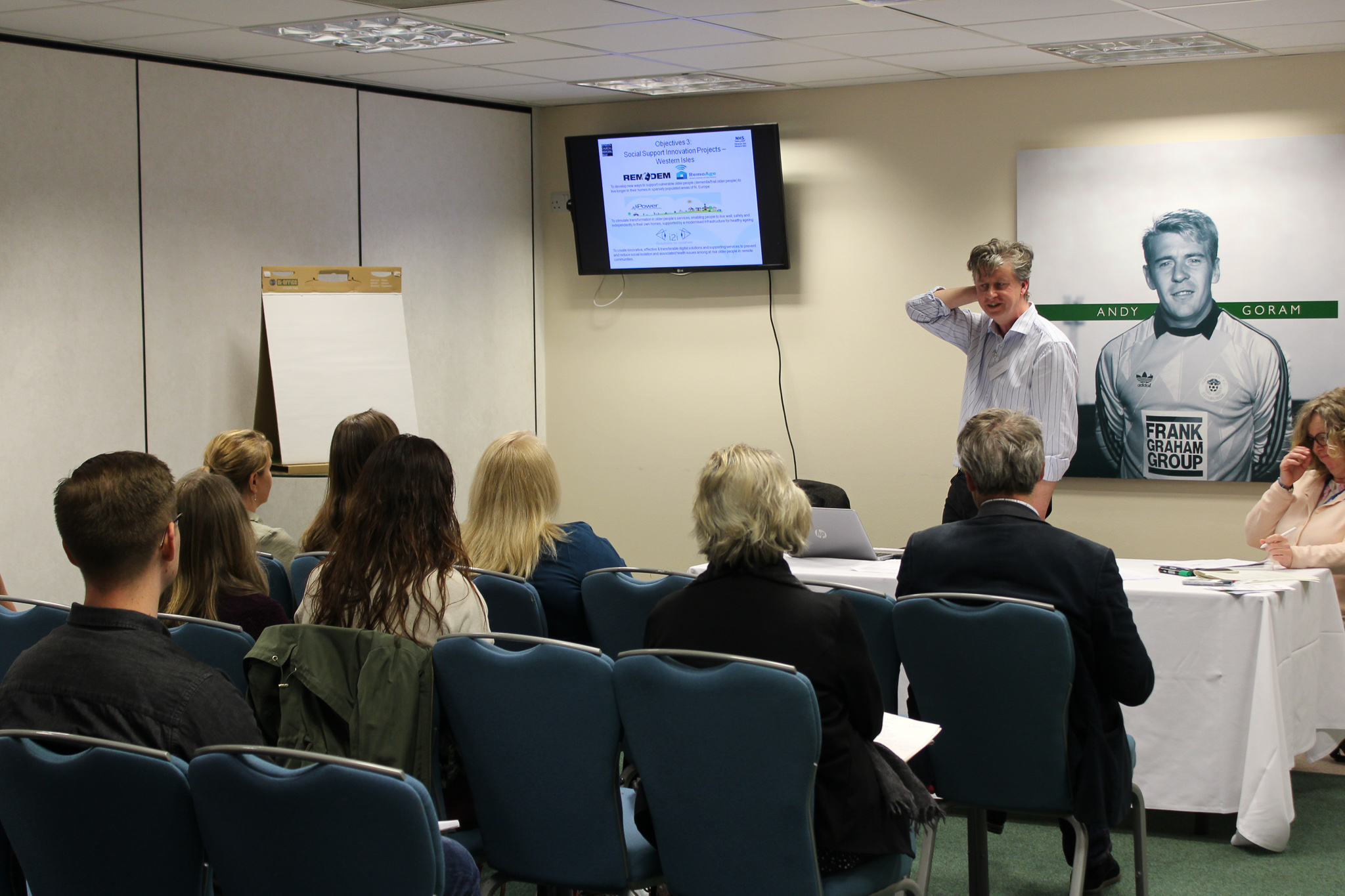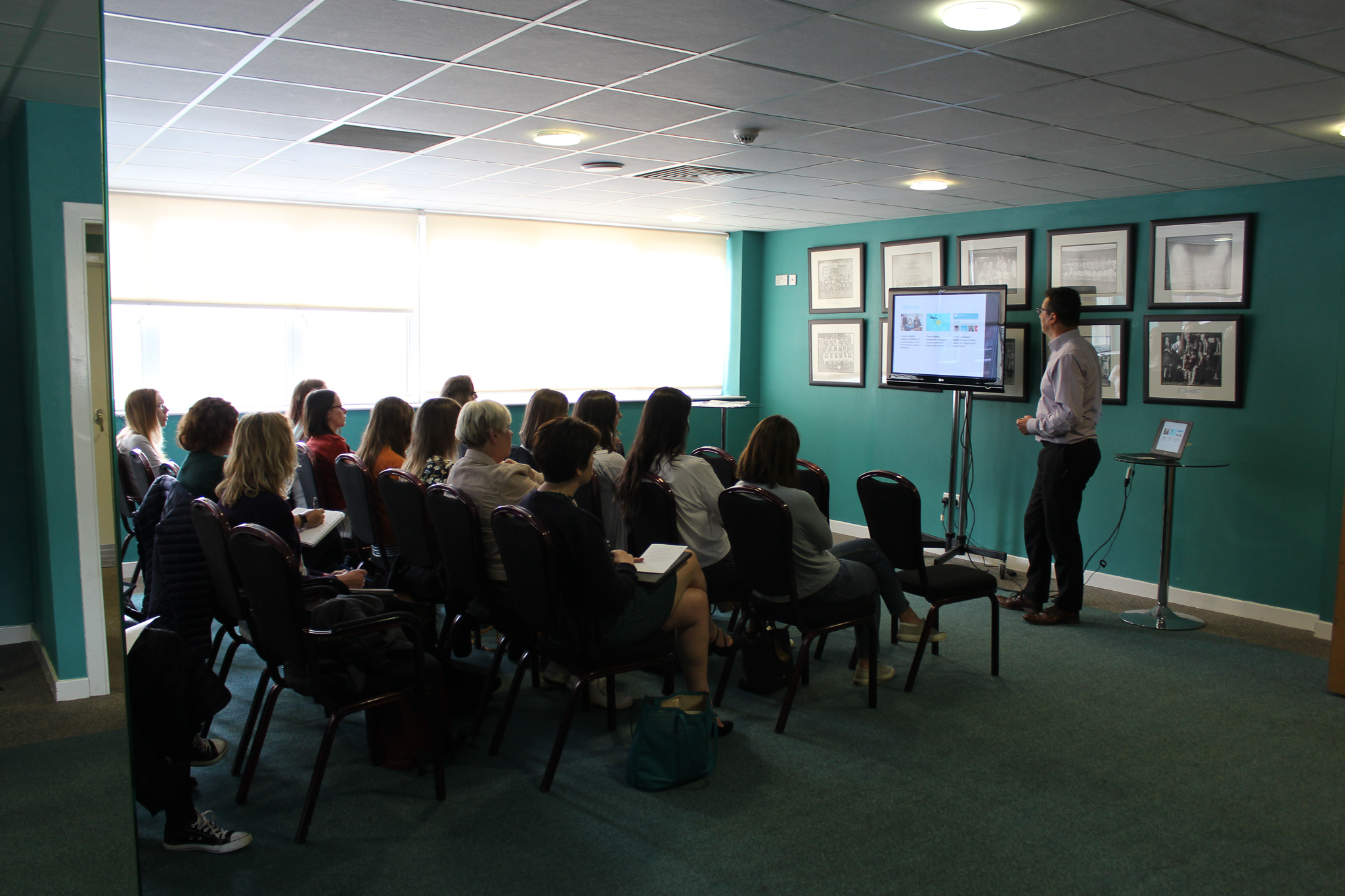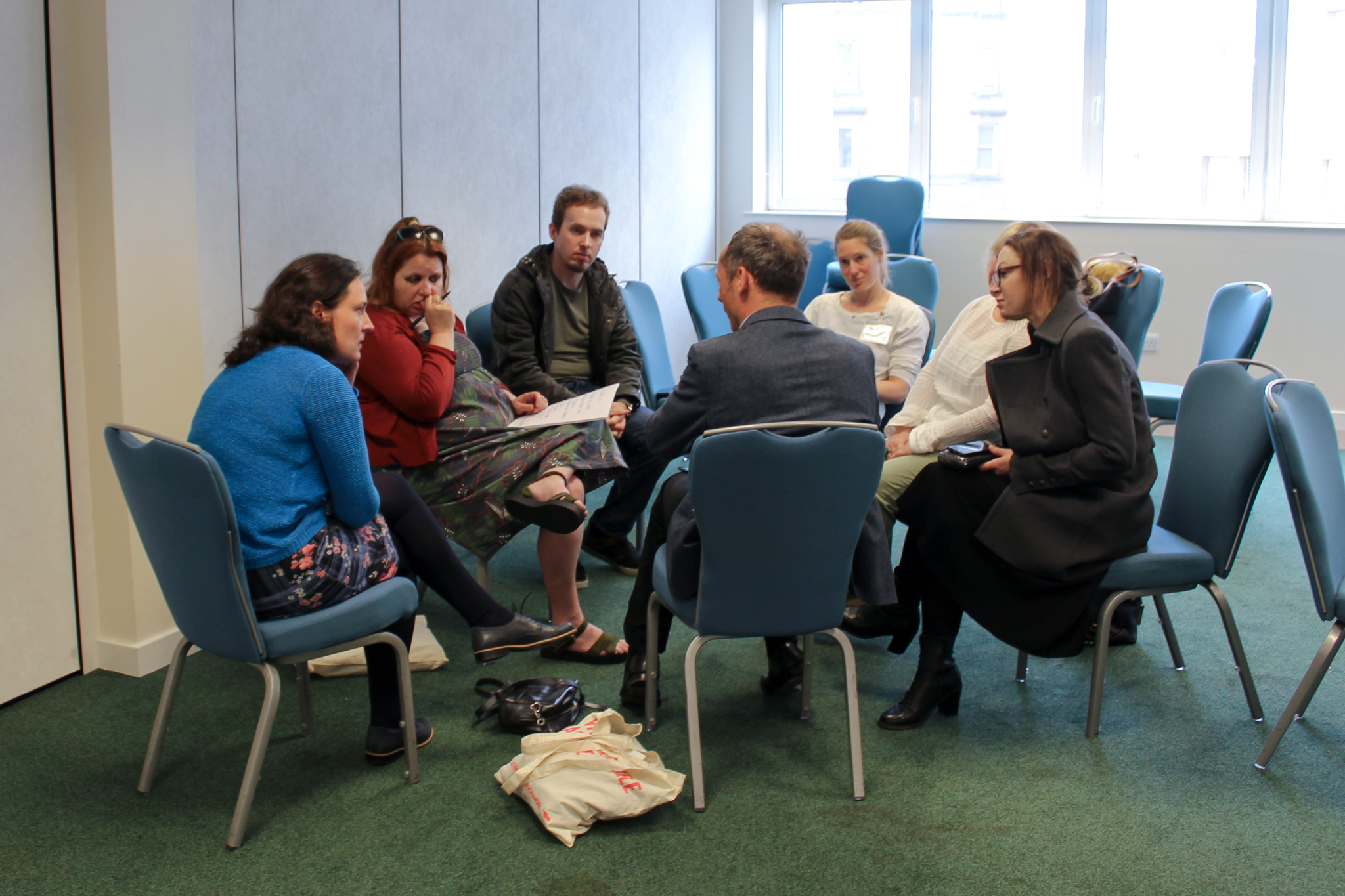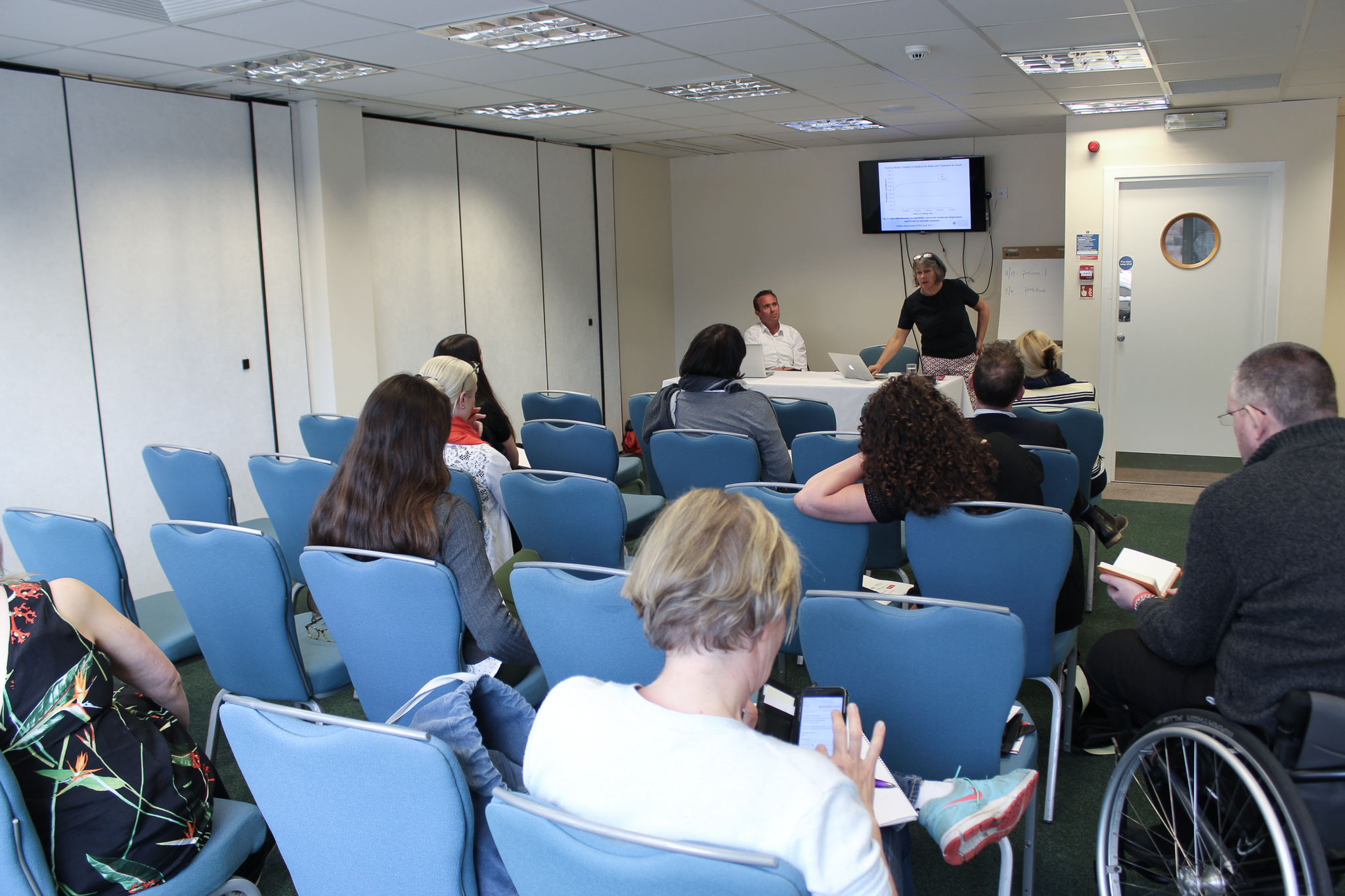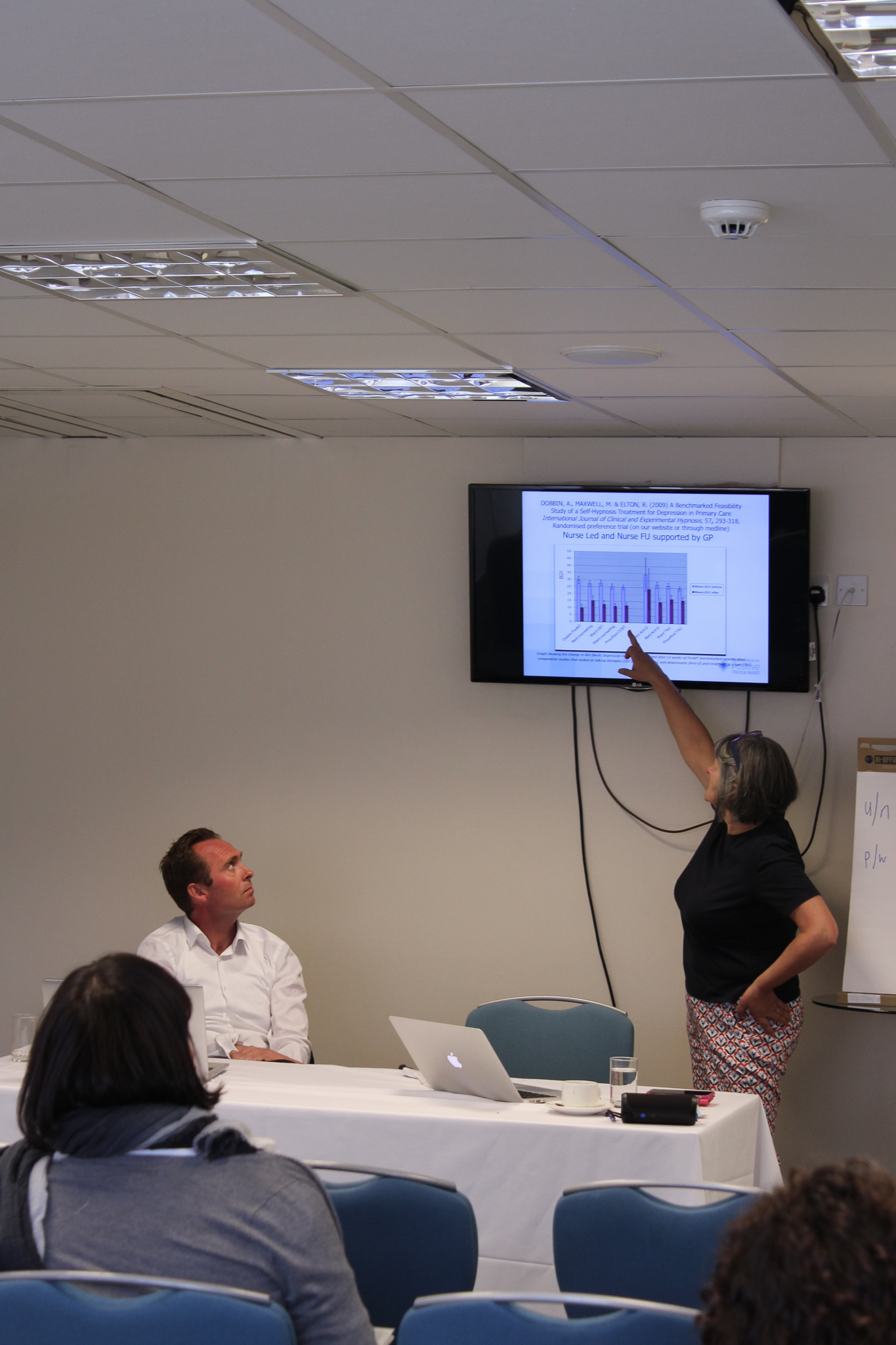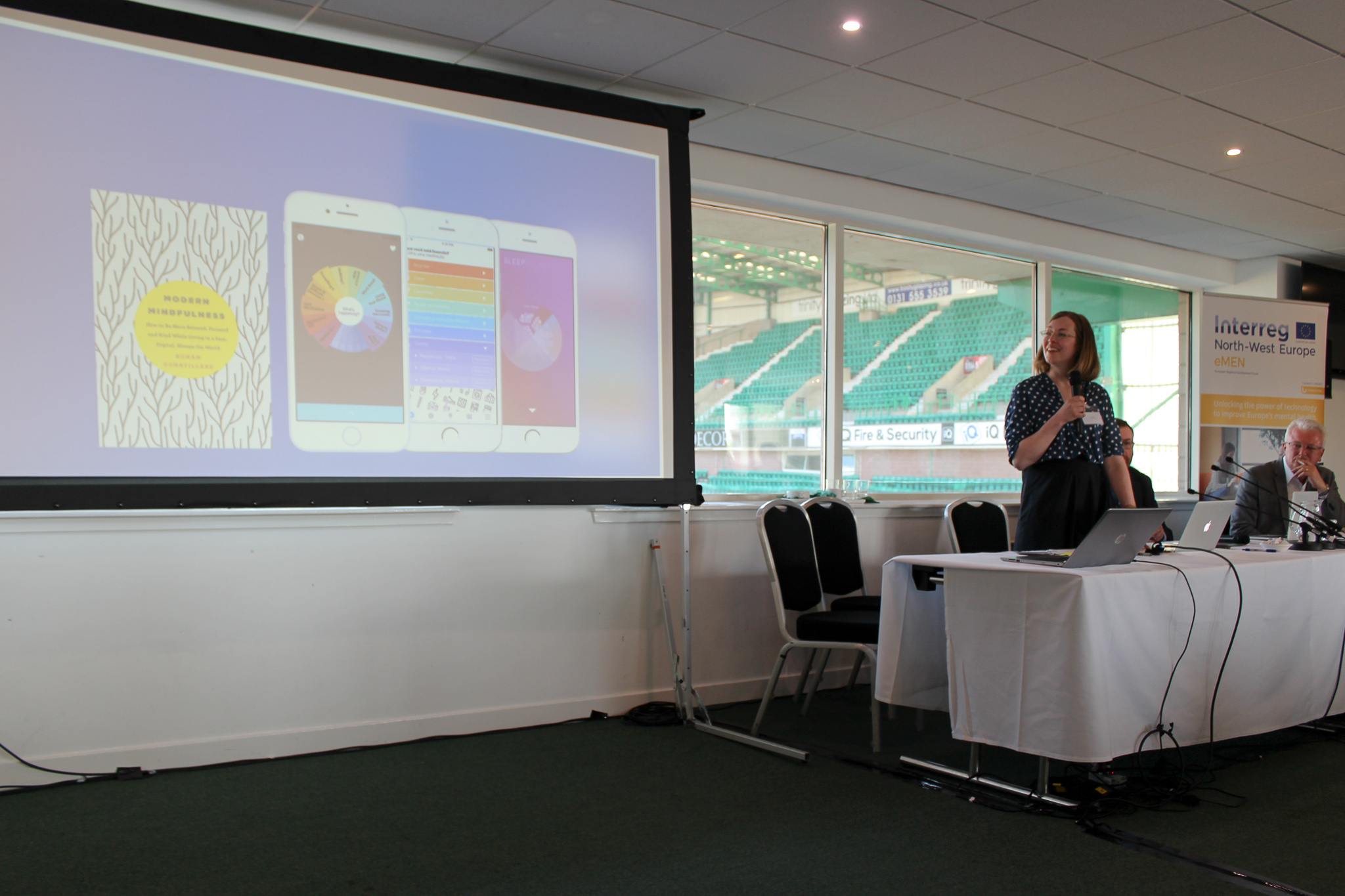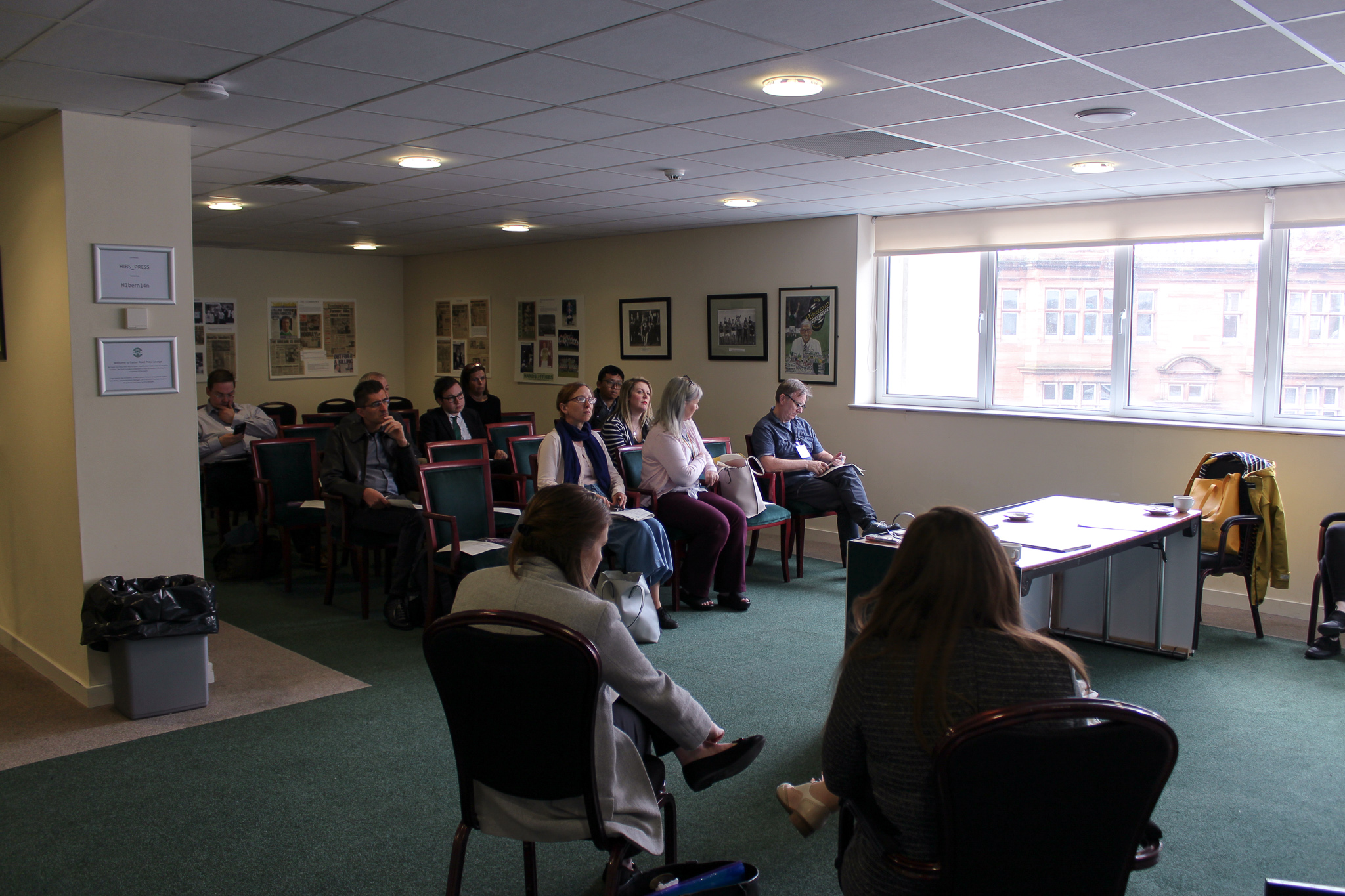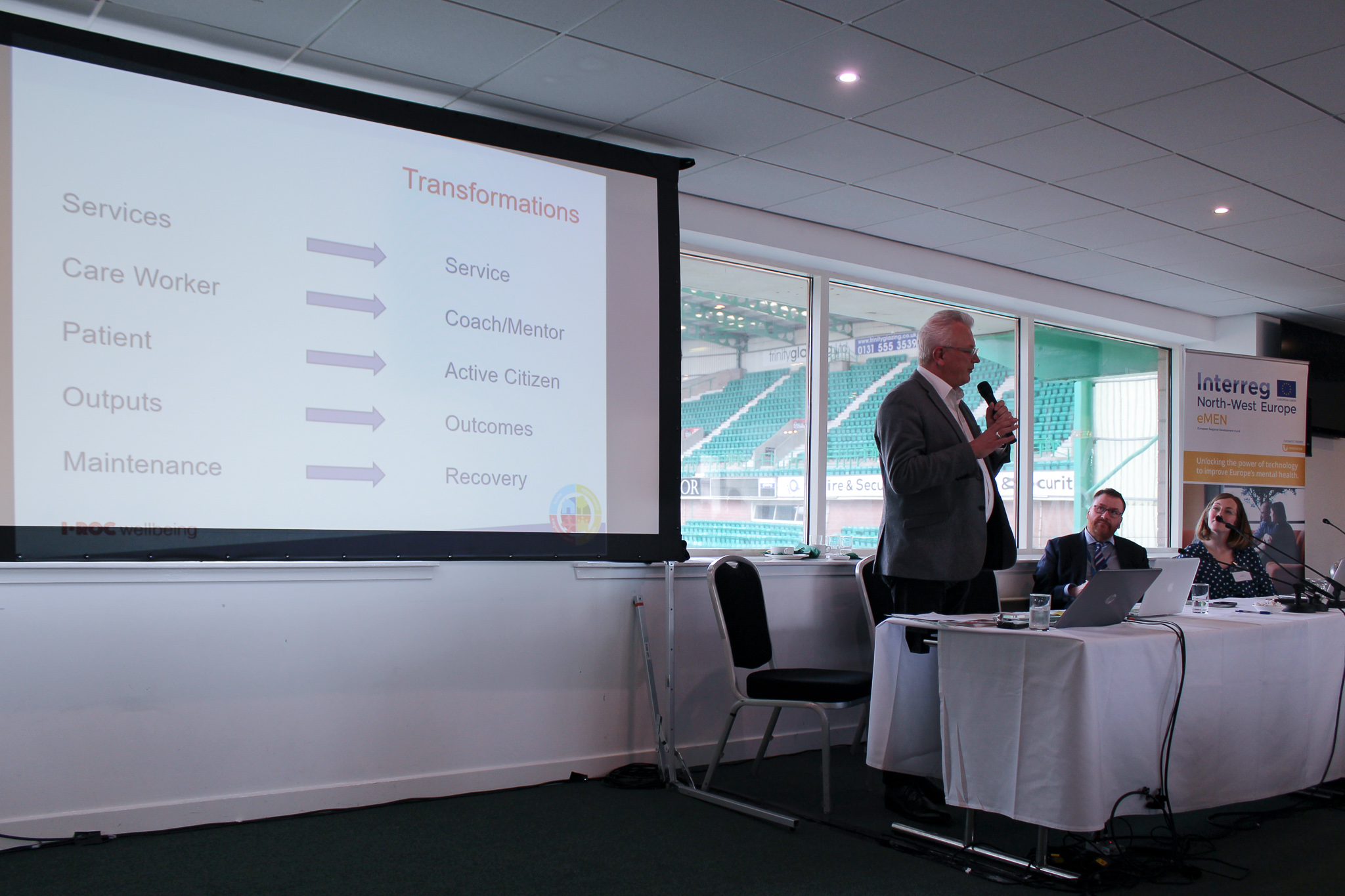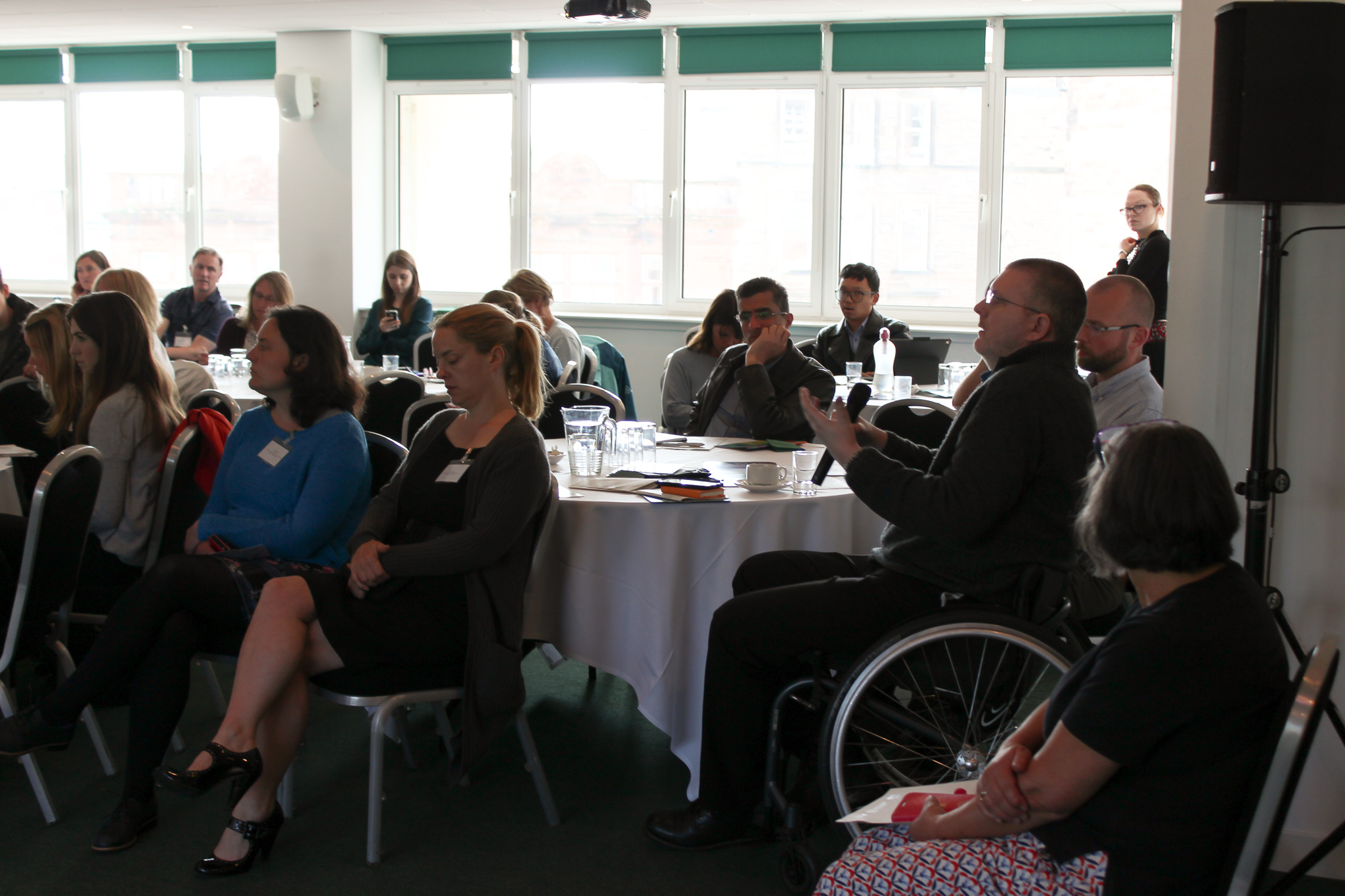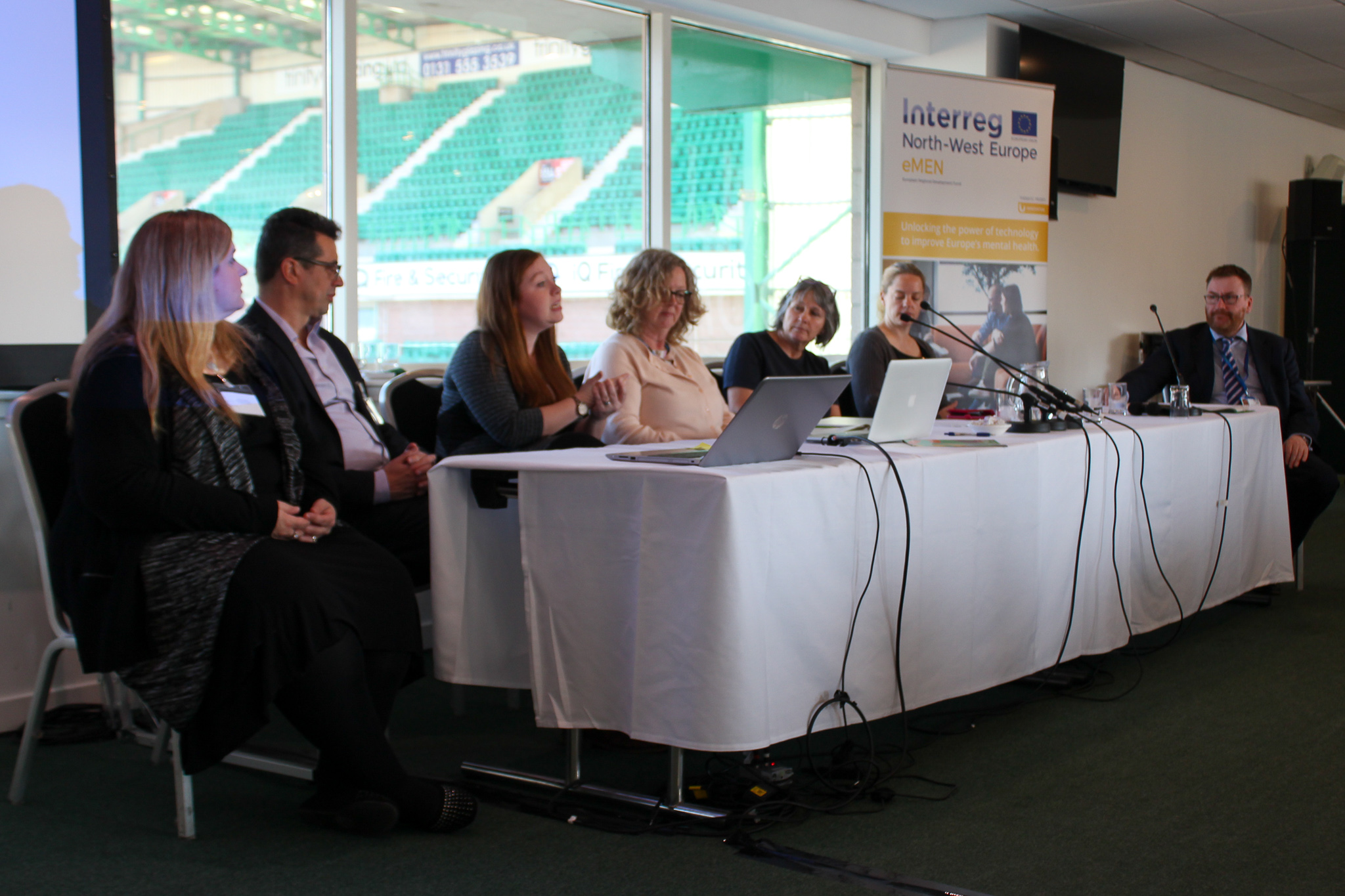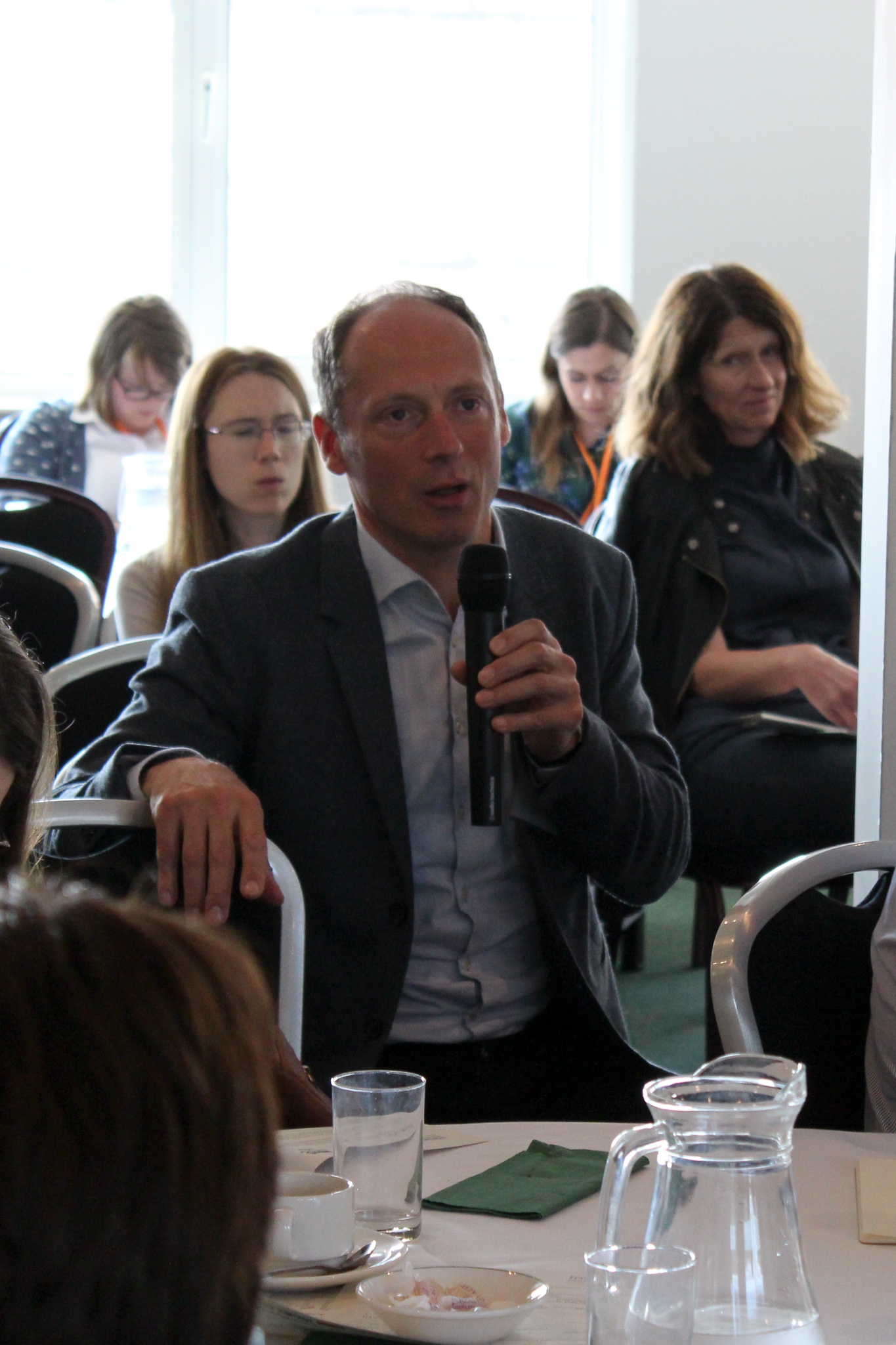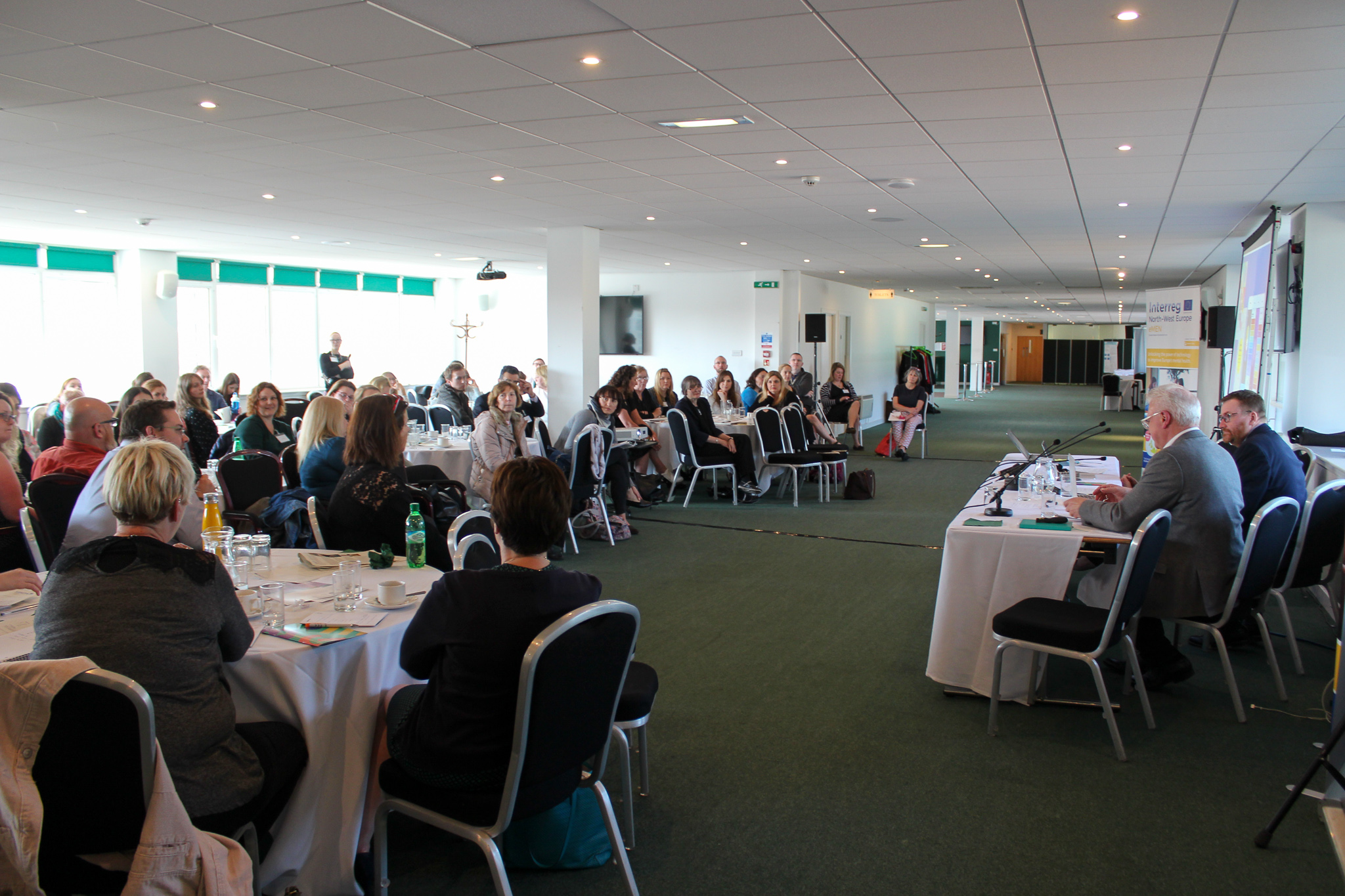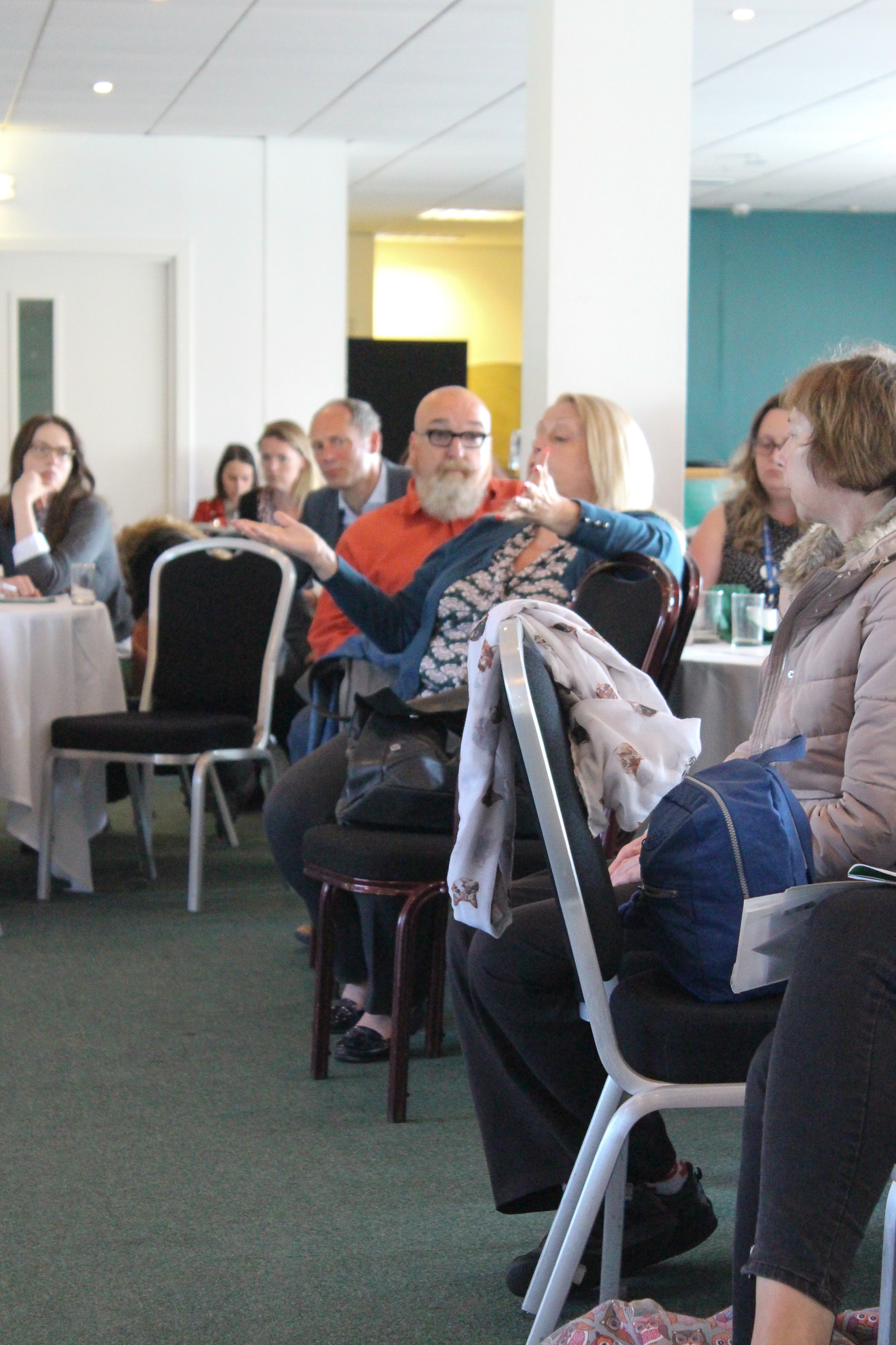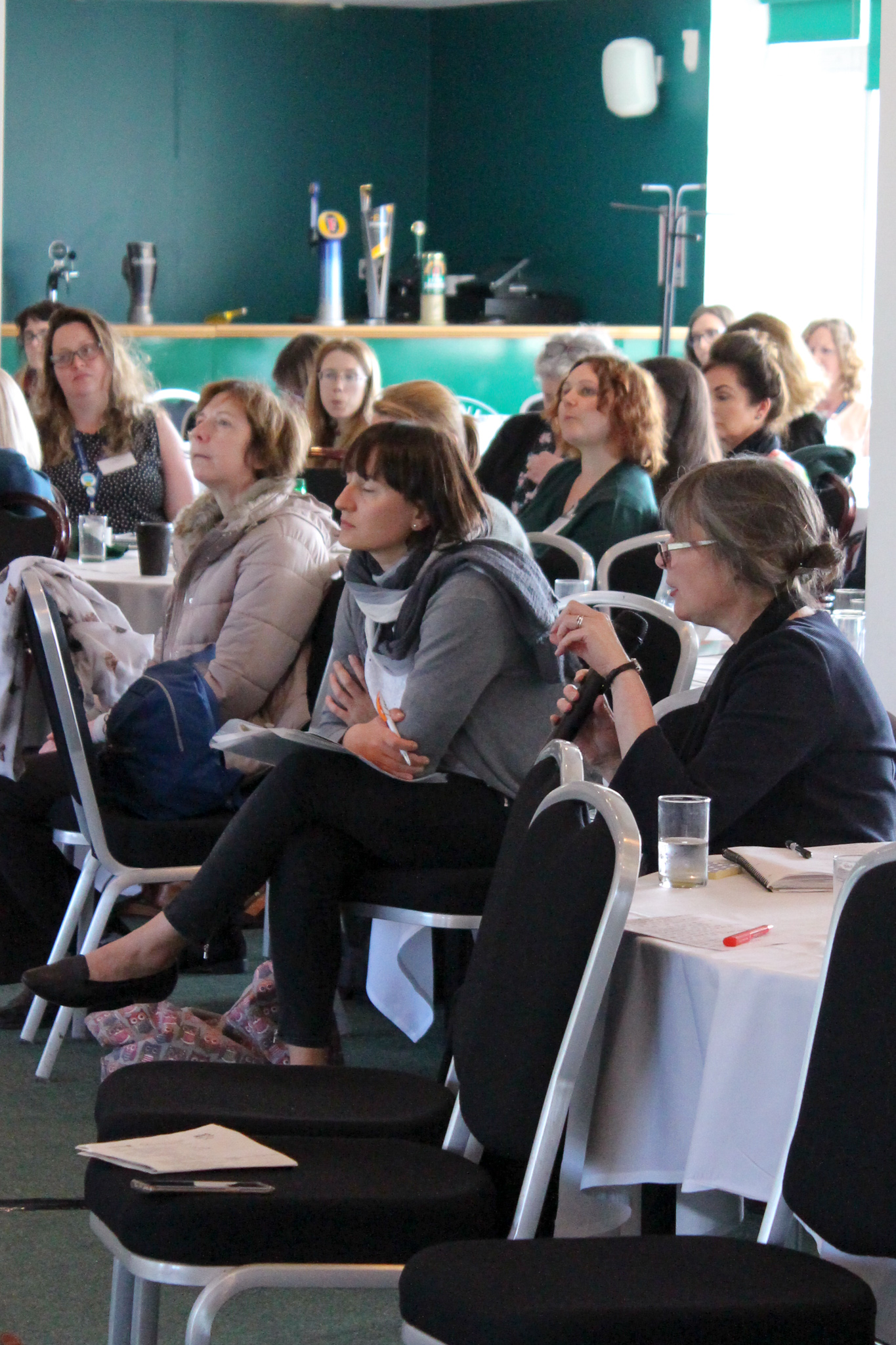The keynote presentation was delivered by Dr Diane Pennington, Lecturer at the University of Strathclyde, Glasgow. Dr Pennington considered the internet as a place, as people increasingly distinguish less between their virtual online lives and their physical lives. With this in mind, Dr Pennington highlighted the importance of considering e-mental health and social exclusion through the terminology that people use to describe problems they are having with their mental health and the ‘digital divide’ perpetuated by inequality. Many people are unable to access the technology due to its cost and lacking the knowledge and skills to use the applications. These are important issues that must be considered by policy, research, and the Scottish Mental Health Strategy.
Dr Pennington’s talk was followed by five parallel interactive workshops, which encouraged delegates to explore in more depth what e-mental health has to offer to different places and spaces:
- Aye Mind – digital mental health collaboration with young people: an adaptable approach useful for schools, colleges and other settings (Trevor Lakey, NHS Greater Glasgow & Clyde)
- How e-mental health can be used in the criminal justice system, and in particular in prisons (Pauline Whelan & Kerry Gutridge, University of Manchester)
- Tackling loneliness and social isolation in rural communities: harnessing community and digital assets, experiences in Canada and Western Isles, Scotland (Martin Malcom & Sue Long, NHS Western Isles)
- Enhancing Interpersonal Connections via Digital: Delivering and supplementing psychological treatment for people suffering from depression and eating disorders (Fiona Duffy & Sarah Taylor and Suzy Cooke & Holly Wilson, NHS Lothian)
- On the Go: Digital Tools that support Positive Mental Health Practice and Decision Support (Paul McGinness, Storm ID & Sheila Ross, Positive Mental Health Foundation)
During breaks and at lunch, a vibrant marketplace gave delegates a chance to talk to a range of SMEs about their experiences of developing and working with e-mental health products. These included: Mydex, Penumbra, the Foundation for Positive Mental Health and Health in Mind.
After lunch, Nigel Henderson (Penumbra) and Lucy Gunatillake (Mindfulness Everywhere) spoke about two very different digital innovations that they have introduced in Scotland. Audience members had a chance to see the inception process and development of their e-mental health products, as well as potential barriers to implementation and how they can be overcome.
The seminar concluded with a panel discussion looking at emerging themes in place-based digital mental health care, allowing all the workshop leaders to summarise their themes and feedback their conclusions, before the floor was opened to the audience for questions. These ranged from funding difficulties, particularly in comparison with pharmaceutical innovations, to looking at technology that may not be ‘cutting edge’ but can still provide valuable support, such as text messaging, which is simple to use and doesn’t require expensive equipment. Other issues raised in discussion included the need for health professionals to have authoritative guidance on which apps and other technologies to use with their patients and the type of evidence required to demonstrate their effectiveness and wider adoption as part of regular healthcare. The discussion concluded with all panel members agreeing that the particular advantage of e-mental health is its ability to extend mental health care and support to people who are not currently receiving it - including hard to reach groups.
The day brought together a diverse set of passionate and driven experts, including experts by experience, who were engaged with the theme and able to consider digital mental health as applied to a nationwide Scottish context. With a combination of presentations from those working in Scotland and knowledge and insights from other parts of the UK and other countries, the seminar shared learning and facilitated networking focused on current and new opportunities for e-mental health in Scotland.
Please find the presentation slides below.
For anybody who attended and but wasn’t able to fill out an evaluation form, we would value your feedback, which you can provide at this link: https://goo.gl/forms/3SnRvv0xpwmPLCaF3
For further information about the seminar, please contact:
Lucy Thorpe: Lthorpe@mentalhealth.org.uk
Harriet Trefusis: Htrefusis@mentalhealth.org.uk

